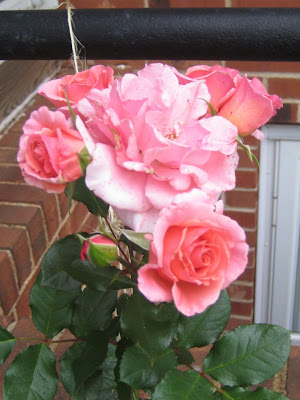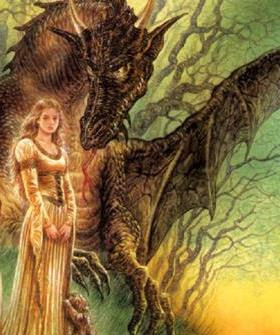The other day, I discovered and devoured
this interview by one of my all-time favorite authors, Megan Whalen Turner. Ms. Turner is the author of the fascinating Queen's Thief Series which, you may or may not have noticed, gets mentioned more often than not on this blog. I'm a bit of a fan . . .
My favorite part of this particular interview was the moment when Ms. Turner was asked, “Do you think you’ll always be writing YA? Or do you have any interest in writing an adult novel someday?”
(Note: For those of you who might not be familiar with the term, YA stands for “young-adult literature,” or literature written, published and marketed toward adolescents and young adults.)
I thought this was an interesting question for the interviewer to hand the author of a popular and award-winning YA series. And I loved Ms. Turner’s answer: “No.”
As a YA writer newly come to the field myself, I have already gotten a taste of the attitude that sometimes comes with the job. There’s a school of thought that seems to think as follows: Beginners write children’s books, progress up to YA, and begin writing adult literature as soon as they reach that proper level of maturity.
Acquaintances of mine or friends-of-friends have said (or told my friends) things along the lines of: “Well, I had some trouble getting into
Heartless at first, but as soon as I realized it was just YA, I liked it better.” I have had people speculate that, now that I’m married, my work will probably “mature.”
What they tend to mean by “mature,” is “take on a sensual element.”
And my answer to this question is as simple as Ms. Turners: “No.”
You see, I have never enjoyed the sensual aspect of adult novels (Married life has not changed this). And really, this tends to be the main factor separating adult from YA literature. I’m not saying it’s wrong—everyone must live by their own convictions—but I simply do not and never will enjoy reading that stuff. It’s as though as soon as a novel slides from YA into the adult section, all the characters are motivated by sensual desires and the compulsion to have these gratified.
To me, this is cheap writing. I find much deeper satisfaction in the YA literature that pulls motivations and desires from very different sources . . . very real and human sources, but not this one-note focus. I often find that YA lit. is more reminiscent of the classics which, while very aware and willing to deal with all sorts of human emotions, sordid or otherwise, never played up the sensuality to the crazy extent you see happening in our modern literature. The classic authors—Austen, Dickens, Gaskell, Hugo, Tolstoy, etc.—recognized the importance of all the intricacies of the human heart. They never fixated on this one, small aspect.
I am certainly not implying that I don’t enjoy a good romance in a story or series! Turner’s Queen’s Thief series has one of the most compelling, interesting, complicated romances I have ever read in any novel, adult or YA. But Ms. Turner, while maintaining realism of feeling and emotion unparalleled, doesn’t feel the need to focus on sensuality. Instead, we get politics and betrayals, conflicted hearts and jealousies . . . everything you could possibly ask for in a romance that makes it all so very satisfying. She never resorts to mere sensuality to make an easy play on our emotions. She doesn’t need to!
And I don’t consider the Queen’s Thief series to be a “romance” as such. Not at all! The romance is an important piece of a much more complicated puzzle. But it doesn’t single-handedly run the show. I like this and find the romance much more satisfying this way. I attempted (to relative success) to make this the case in
Heartless as well. While the romance is important to the story (the plot doesn’t exist without it), the center of the plot is Una’s stubborn clinging to her own will, the disaster that ensues, and her eventual redemption. It’s really not a romantic love story . . . it’s a story about undeserved love.
Anyway, I’m getting away from myself. I would like to point out that, despite the popular view that a more experienced writer writes more “adult” literature, I tend to see the opposite among my favorites. Have a glance at Neil Gaiman’s work. He made his name with his very “adult” Sandman Chronicles and
American Gods . . . but his most recent pieces have been wonders like
The Graveyard Book and
Odd and the Frost Giants. Children’s literature. Not even YA. Books for children.
Or, to pick an author I respect that much more, take a look at C.S. Lewis’s writing career. While he wrote many brilliant and fascinating adult novels (
The Space Trilogy,
Till We Have Faces), he will always be renowned for his children’s literature, the beloved
Chronicles of Narnia.
YA, as Ms. Turner points out in her interview, is a relatively new development in the publishing market. It bridges the gap between children and adults . . . but not in a progressing-from-intermediate-to-advanced sort of way. It’s a sophisticated genre that I have seen cover many mature themes. Themes like love and loss, death and life, abuse and abandonment, promiscuity and rebellion . . . in short, all the major themes you find in adult literature. But usually (and not always. Have a glance at all the “vampire romances” dominating the YA shelves will tell you that!) without such a focus on sensuality as the #1 motivation of mankind.
I might even go so far as to name YA the most complicated genre to write. Because it bridges that gap between child and adult, it is necessary for it to appeal to both. You can’t have children solving all the world’s problems with no help from adults . . . neither can you have adults solving all the world’s problems with no help from children. There must be balance. There must be recognition of both the advantages of adult maturity and childlike innocence. It is a difficult genre to write well . . . but such a satisfying genre to read!
Anyway, those were some thoughts stimulated from reading Ms. Turner’s great interview! If you haven’t read her series, please do. She creates a rich world which, though peppered with a pantheon of old gods, actually teaches spot-on theology (the pantheon aspect aside). As a Christian reader, I was startled to find that the views she presents on godhood are so compellingly true . . . but perhaps I’ll write an article on that at a later date.
Happy reading!




































